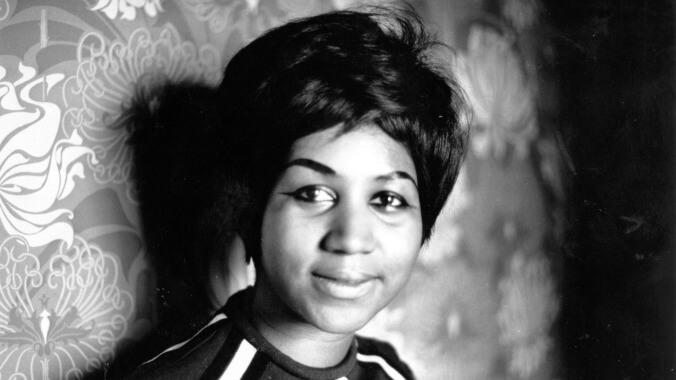Aretha Franklin Photo: Express Newspapers
A newly declassified file 270 pages in length reflects just how extensively the Federal Bureau of Investigation tracked Aretha Franklin’s civil rights activism. The document, which was opened to the public yesterday, chronicles death threats, copyright infringement cases, and perceived communist performances. The Bureau also kept a close eye on Franklin’s relationships with Martin Luther King, Jr. and Angela Davis.
The first section of the file chronicles a myriad of death threats received by Franklin and her family in the late ‘60s and early ‘70s. The singer weathered multiple letters and calls threatening her life, including one from a Cook County jail inmate who posed as an FBI agent and attempted to extort $1 million from Franklin. She had a consistent stalker, and was also reached out to in 1974 by a stranger claiming she was on a “hit list.”
Surveillance on Franklin’s relationship with Davis included tracking a 1972 Los Angeles benefit sponsored by the National Committee to Free Angela Davis where “soul singer Aretha Franklin” performed. At the time, Davis had been “facing murder-kidnapping charges in California.” In addition to performing Franklin, also once offered to post Davis’ bail; however, that piece of information was not included in the file.
The FBI also documented Franklin’s performances at the Southern Christian Leadership Conference (SCLC) while Martin Luther King, Jr. was leading the organization. The Reverends Jesse L. Jackson and Ralph D. Abernathy were also heavily involved in the events at the time. The series of shows, which occurred across the south between 1967 and 1968, are characterized by the FBI in the file as “communist infiltration” events. Per the FBI, the SCLC took a “hate America” and “pro-communist” line in their work.
The file also highlights a memorial concert at the Atlanta Braves stadium held in the wake of King’s assassination. Franklin shared the bill with Sammy Davis Jr., Marlon Brando, Mahalia Jackson, and The Supremes. The FBI noted that within the group of performers, “some have supported militant black power concepts and most have been in forefront of various civil rights movements.” There was a clear raised concern from the Bureau around “racial disturbance” in the area as a result of the memorial.
Although Franklin’s support for the civil rights movement was steadfast, the FBI also associated her with multiple events and groups they could not actually confirm her inclusion in. The file notes a Davis defense fund benefit put on by the Young Workers Liberation League, which the Bureau believed “might be held at the Boston Garden with Aretha Franklin.”
The FBI also drew connections between Franklin and the Black Liberation Army (BLA) after purportedly finding her address among BLA documents and bizarrely attempted to connect her to the Coordinating Council for the Liberation of Dominica (CCLD). The FBI connected Franklin and the CCLD merely on the basis that CCLD “may have established a base of operation in the New York City area,” and that the FBI claimed Franklin was an associate of black activist Roosevelt Bernard Douglas.
One document addressed Franklin’s suspected participation in a Black Panther Party rally and food distribution event in Los Angeles. The BPP, identified by the FBI as a “black extremist organization” seeking the “overthrow of the United States Government,” also reportedly reached out to Ike and Tina Turner for aid with the event. But the FBI specified in the document they were not actually able to verify Franklin’s or the Turners’ attendance.
The last roughly 170 pages of the documents deftly chronicle a copyright infringement case against a Yahoo! Groups message board moderator. The moderator, who allegedly pirated and stole DVDs and CDs of Franklin’s performances. He used the stolen material to direct viewers back to their message board, where per Pitchfork they describe themselves as an “anti-fanatic.”
The case has yet to make it to trial. Although it does not appear to have direct relevance to Franklin’s civil rights work, it does reflect the extensive, long-term nature of the project that was surveilling her and chronicling the singer’s own filed complaints.


 Keep scrolling for more great stories.
Keep scrolling for more great stories.